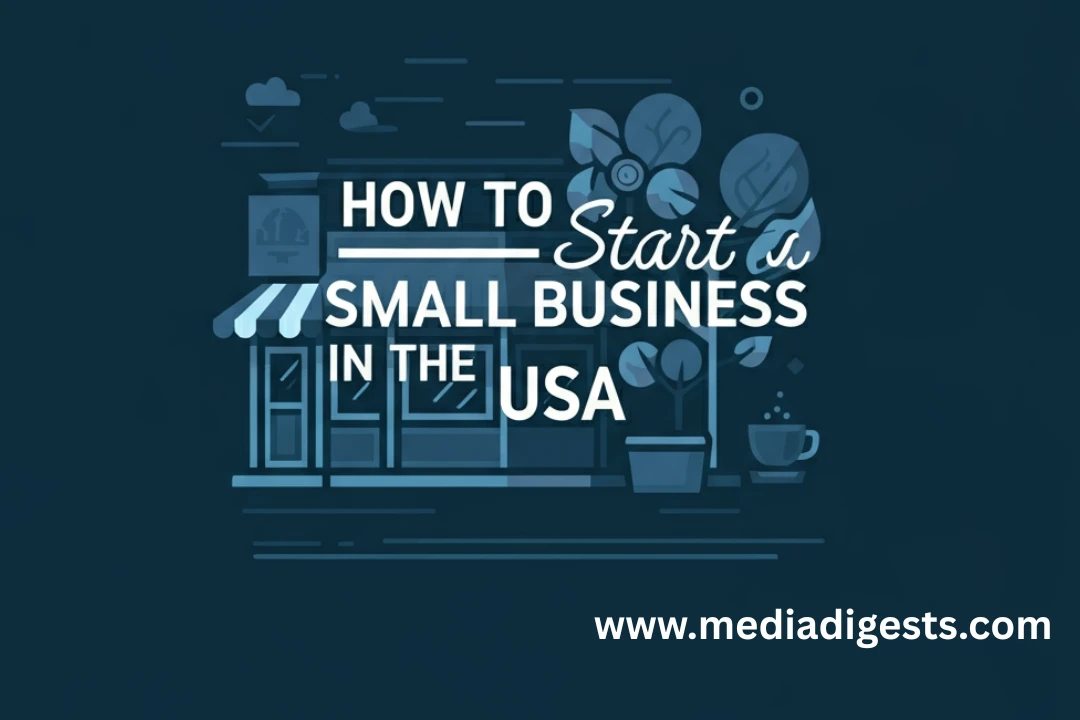Dreaming of running your own business in the United States? You’re not alone. Many people want to turn their ideas into something real, whether it’s a local bakery, an online shop, or a tech startup. Building a small business can feel overwhelming, but breaking it down into simple steps makes it much more approachable. This guide shares practical actions, tips, and insights so you can move from dream to launch with confidence.
Develop Your Business Idea and Plan
All great businesses start with a solid idea and a clear plan. Think about what makes your idea unique and why customers would choose you. This is the time to brainstorm, research, and clarify what you want to offer and whom you want to serve.
Conduct Market Research
Before launching a business in the USA, look into the industry you’re entering. Who are your competitors? What do customers care about? Use online tools or even simple surveys to gather information about demand, pricing, and opportunities in your market.
Write a Comprehensive Business Plan
A business plan is your roadmap. Summarize your goals, describe your products or services, sketch out a marketing plan, and estimate your budget. It doesn’t have to be fancy, but the clearer your plan, the smoother your journey will be—and investors or banks will want to see it, too.
Choose Your Business Structure
Picking a legal structure is a key early step when starting any small business in America. The right structure affects your taxes, paperwork, and personal liability.
Sole Proprietorship
This structure is ideal for solo entrepreneurs. It’s easy to get started, but remember that it doesn’t protect your personal assets from business debts.
Partnership
Running a business with someone else? A partnership divides responsibilities and profits between two or more people. Have a formal agreement so everyone knows their roles and expectations.
Limited Liability Company (LLC)
If you want to blend personal asset protection with flexibility, an LLC is a popular option among small business owners. It keeps your business liabilities separate from your personal finances while supporting different ownership styles.
Handle Legal and Registration Requirements
Once you’ve chosen your business structure, you’ll need to handle some important paperwork to get legal. Taking care of these early helps you build credibility and keep out of trouble.
- Register Your Business Name: Make sure your company’s name is available and register it with your state or county, especially if you’re using a name other than your own.
- Apply for an EIN: Most businesses need an Employer Identification Number from the IRS. This makes things easier for tax filings and opening a business bank account.
- Look Up Licenses and Permits: Depending on your industry and location, you may need special licenses, certifications, or health permits. Check with your city hall or state agencies to be sure.
Secure Your Business Financing
Money is often one of the biggest hurdles facing new business owners. Fortunately, you have more options than ever to fund your project.
- Self-Funding: Savings, personal loans, or even help from family and friends can go a long way in the early days.
- Small Business Loans: Community banks, online lenders, and the Small Business Administration (SBA) all provide loans tailored for small businesses in the United States.
- Investors & Crowdfunding: Attract angel investors, try online crowdfunding platforms, or pitch your idea to venture capitalists if you need significant capital and have a strong business model.
Set Up Your Business Operations
With your planning, registration, and funds in place, you can focus on the daily nuts and bolts. Whether you’re opening a shop or working from home online, set up your workspace, fill out your team, and choose the right software for accounting and inventory. Reliable systems help your business run smoothly and grow over time.
Conclusion
Learning how to start a small business in the USA is all about taking steady, doable steps. From shaping your idea to handling paperwork and setting up day-to-day operations, each action brings you closer to seeing your business succeed. Don’t be afraid to ask for advice and use support resources—your hard work and preparation can turn your business dream into a reality.
For more guidance, you can check the U.S. Small Business Administration’s official guide to starting and growing a business.
Frequently Asked Questions
1. How much does it cost to start a small business in the USA?
Startup costs can vary widely. Many online businesses can begin for under $1,000 while retail shops or restaurants might need $10,000 or more for space, equipment, and permits.
2. Can I start a business without a formal business plan?
It’s possible, but not wise. A business plan makes your path clearer and helps you make smarter decisions and secure funding.
3. Do I need a lawyer to start a business?
Not always. Simple businesses often don’t require legal help, but consulting a lawyer is helpful if you’re unsure about contracts, trademarks, or complex structures.
4. What is the easiest business to open in the US?
Freelance services, pet sitting, home cleaning, or digital content creation generally have low barriers to entry and offer flexibility for busy entrepreneurs.
5. How long is the registration process for a small business?
If you’re registering a business name or DBA, it may take just a few days. Forming an LLC or corporation could take several weeks, depending on your state’s requirements.
You may also visit: https://mediadigests.com/

